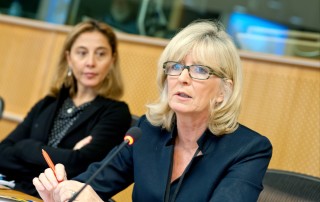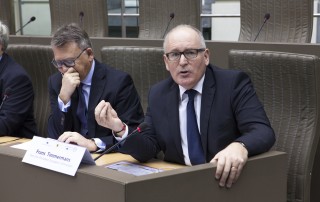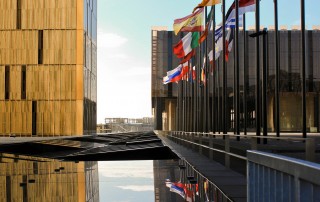EMPODERANDO AL PERIODISMO A TRAVÉS DEL DERECHO DE ACCESO A LA INFORMACIÓN
EL MANUAL ‘LEGAL LEAKS’ AYUDA A PERIODISTAS A OBTENER
INFORMACIÓN USANDO LAS LEYES DE ACCESO A LA INFORMACIÓN
Why is the right of access to information important for journalism?
A Guide for Journalists on How to Access Information
The Legal Leaks Toolkit, developed by Access Info Europe and n-ost, helps journalists access information using Access to Information laws. The Toolkit is available in a generic international version and can be adapted to the legal framework of any country. The existing national versions, translated into local languages, are available below. You can also read more below about our training programme and about how to contact
the Legal Leaks Help Desk.
Why do media experts think access to information is important?
Journalists, activists, and media experts speak about the importance of access to information in their daily work. Watch all interviews here!
That little detail in the relationship between journalists and sources, that little one, is so important that could change the way in which we tell stories.
It is extremely important that there is this mechanism that you can use as a journalist to say «Hang on a minute, you need to give us this, because we have a right to know».
It’s a great way to get stories, it’s a great way to fin out what governments in particular are doing, it’s a great way to find out where money goes, it’s a great way to prove accountability.
The right of access to information is very important for the journalists’ work; it’s important for everyday work, but it’s even more important for investigations.
Journalism is about investigation, it’s about asking questions; but it’s about documents as well, as a proof for questions, as a proof for answers
Basically, I need access to information to do my job as someone who is supposed to ensure the accountability of politicians, of public officials.
Cover photo: European Parliament via Flickr (CC BY-NC-ND 2.0)
ÚLTIMAS NOTICIAS SOBRE EMPODERANDO AL PERIODISMO
Ombudsman asked to investigate refusal to publish legal advice on the legal basis for EU lobby register
Madrid/Brussels, 28 July 2017 – With upcoming negotiations on reforming the state of EU lobbying transparency imminent, the legal advice given to the Commission and Council on the legal basis for lobby reform is back under the spotlight following appeals this week to the EU Ombudsman, Emily O’Reilly. Access Info Europe's and MEP Dennis de Jong's parallel complaints to the
Farce as Brussels blocks 195 requests for EU chief’s travel expenses
Euronews | 27/07/2017 Inglés - Transparency campaigners have slammed Brussels after a 1,178-day battle to find out how much EU chiefs spend on travel. Access Info Europe (AIE) wants to know how much Jean-Claude Juncker, Federica Mogherini and others spend on moving around for official business. Leer más...
Transparency of Commissioners’ travel expenses “disproportionate” says European Commission
Madrid, 27 July 2017 – Access Info has described as extremely regrettable that six months after 120 European citizens requested access to last year’s travel expenses of the 28 EU Commissioners, the Commission has taken a unilateral decision to disclose data just for January and February 2016, and that it will not contemplate any greater transparency. Furthermore, in response to
EU’s top court confirms that all documents held by European Commission fall under access to documents rules
Madrid, 21 July 2017 - Access Info Europe welcomed this week’s ruling from the Grand Chamber of the Court of Justice of the European Union, that the Commission cannot automatically refuse access to whole categories of documents in its possession. The Court confirmed that the EU institutions should always apply the EU’s access to documents rules to any documents they
Promoting Paris in Zagreb
[Post first published on the Open Government Partnership Blog] Helen Darbishire, Executive Director Zagreb, 20 July 2017 - “It’s really hard to have put a lot of effort into publishing a citizens’ budget and then to have only ten people click on it,” lamented one official in the Croatian Ministry of Finance. This is a classic challenge facing reformers
Interview to Helen Darbishire: When a Minister does not resign after scandal, there may well be consequences in the next elections
Nacional | 18/07/2017 Croata/ Traducido al inglés - Nacional: Why did you come in Croatia this time? The first time you were in Zagreb was in 1993 during the difficult wartime. How much did Zagreb and Croatia change since then? Helen: I first came to Zagreb in December 2013 for a meeting of journalists, organized by the Council of Europe,




